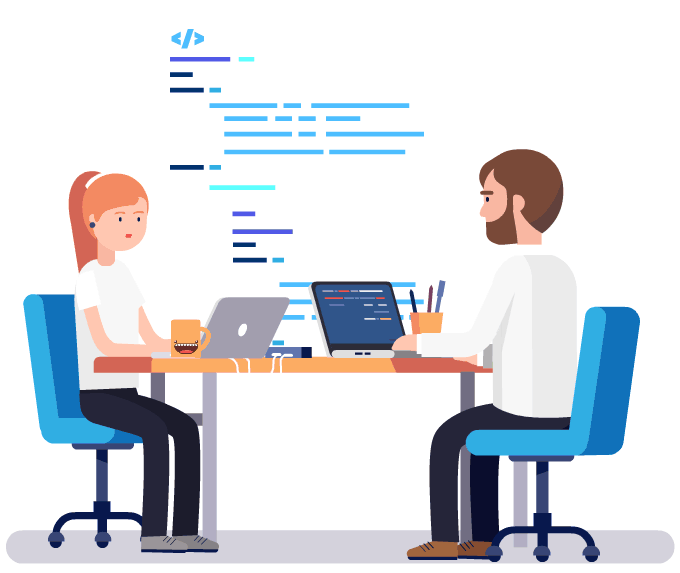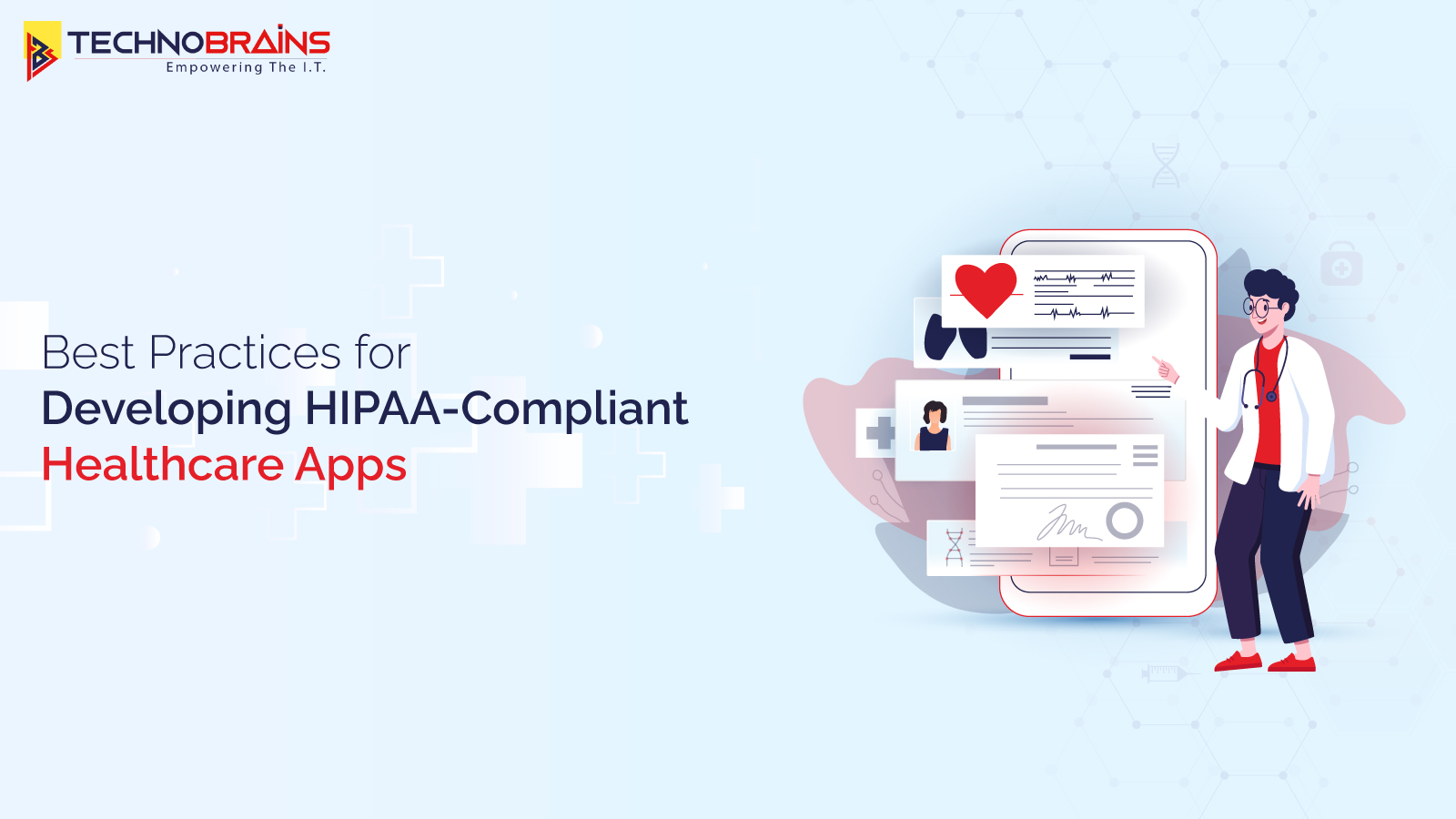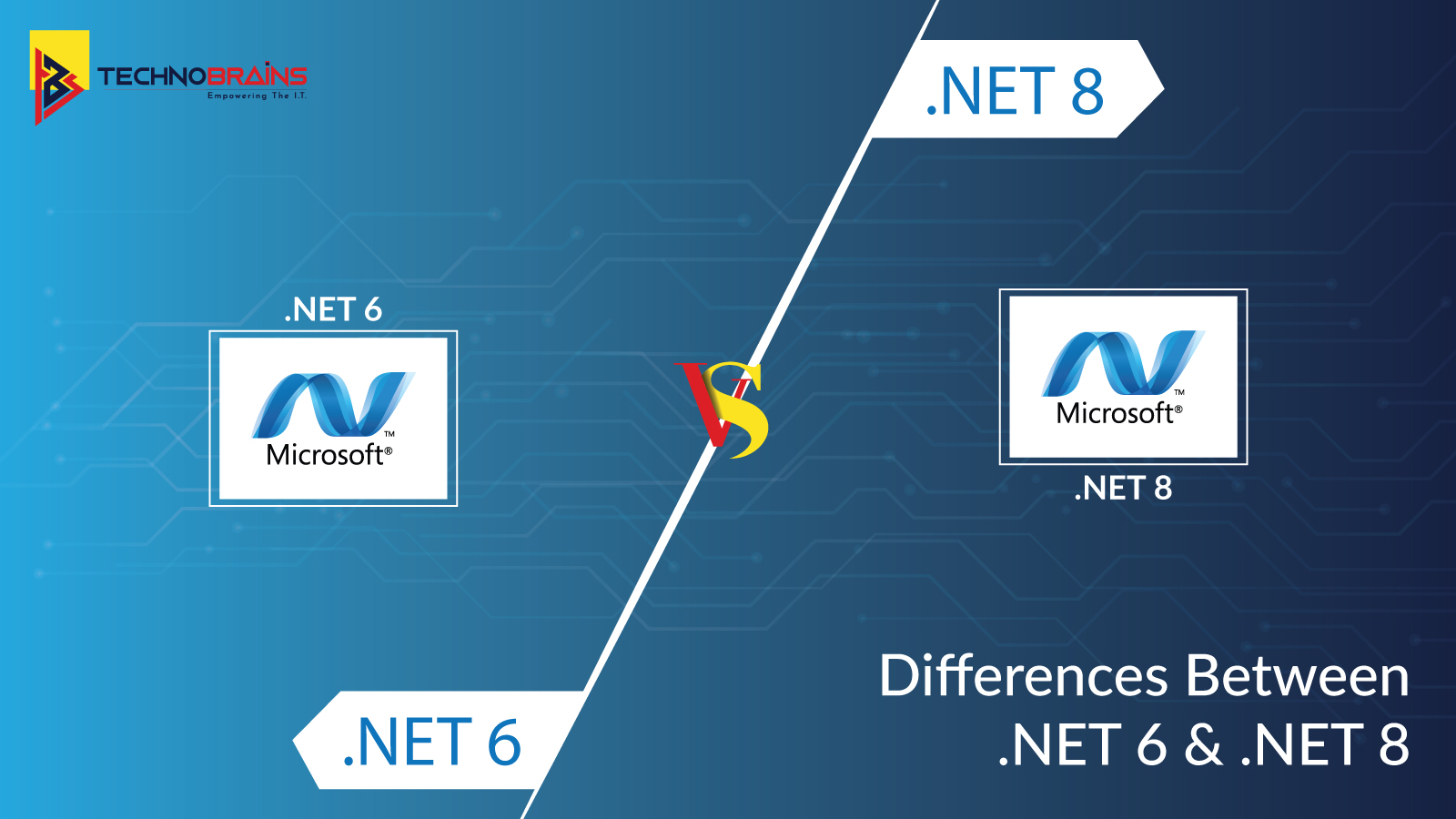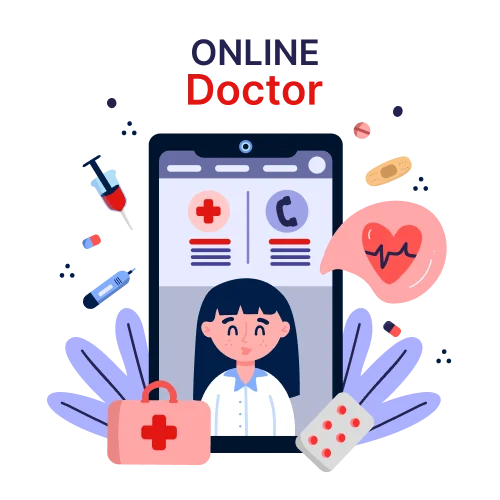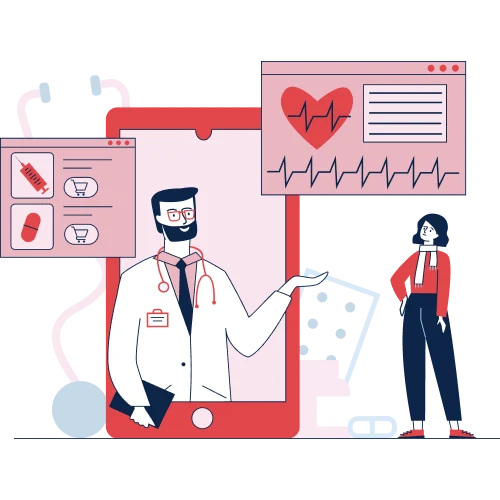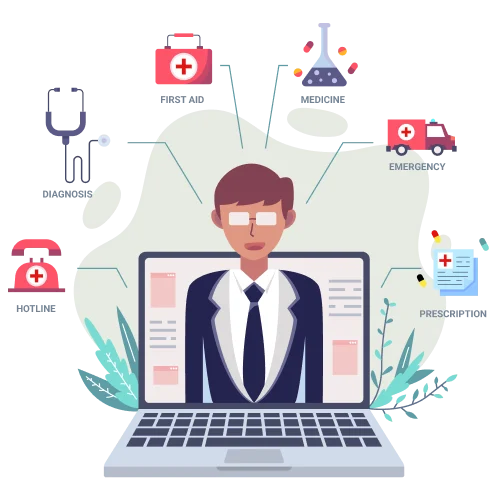Get 40 Hours Free Developer Trial
Test Our Developers for 40 Hours at No Cost - Start Your Free Trial →
Technological developments have sparked the healthcare industry’s digital transformation, creating amazing growth opportunities. The desire of people to remain more involved in their healthcare decisions and overall management through the use of healthcare applications is among the main catalysts of the current shift.
As a result, it is now vitally important for every organization to invest in digital solutions to adequately meet consumer needs and obtain a distinct edge in the contemporary healthcare sector. These user-friendly mobile apps make healthcare services more accessible than ever. From scheduling doctor appointments and ordering medicines to gaining swift access to medical records, they make it easy for people to do just about anything.
But with the growing demand and reliance on these apps comes the critical consideration of ensuring that they are compliant with the applicable healthcare regulations and laws. Among these standards, certainly, the most important and prominent requirement is HIPAA.
In this blog, we’ll look at what HIPAA is and list some of the best practices for HIPAA-compliant healthcare app development.
Read Also, IoT in Healthcare: Trends, Advantages and Use Cases
What is HIPAA?
HIPAA stands for the Health Insurance Portability and Accountability Act, which is a collection of regulations and standards that came into effect back in 1996. The primary intent behind signing this act into law is to protect patient health information and address certain limits on health insurance coverage.
For any healthcare organization, keeping patients’ clinical information safe and confidential should be their foremost priority. They can achieve this most effectively by embedding robust security and privacy features right into their software. This enables them to protect sensitive, private patient data whilst guaranteeing HIPAA compliance.
You can think of HIPAA as a shield designed to safeguard the confidentiality of patients. Everyone who works with protected health information—doctors, hospitals, insurance companies, clearinghouses, and business associates of HIPAA-covered entities—must adhere strictly to HIPAA’s rules. Disregarding HIPAA laws and regulations can significantly damage an organization’s standing and undermine user confidence.
Let us quickly look at some reasons why HIPAA compliance is important:
- Grants users more control over their personal information
- Creates a safe and sound environment for users’ sensitive medical records
- Guarantees the security of software using protected health information (PHI)
- Introduces a higher degree of uniformity between healthcare providers
- Ensures accountability for people and entities that transgress its standards
Over time, HIPAA has evolved to become an essential piece of law. Whether we’re referring to the advantages it brings to healthcare institutions or patients, its influence is significant and identical to the impact of mobile apps on healthcare as a whole.
You have likely figured out by now what HIPAA compliance is and why, in this mobile-first world, observing it is a must. Let’s now examine some best practices for developing healthcare mobile apps compliant with HIPAA.
Also Read, How AI Healthcare Software Revolutionizing the Medical Industry.
Top Strategies for Developing HIPAA-Compliant Healthcare Apps
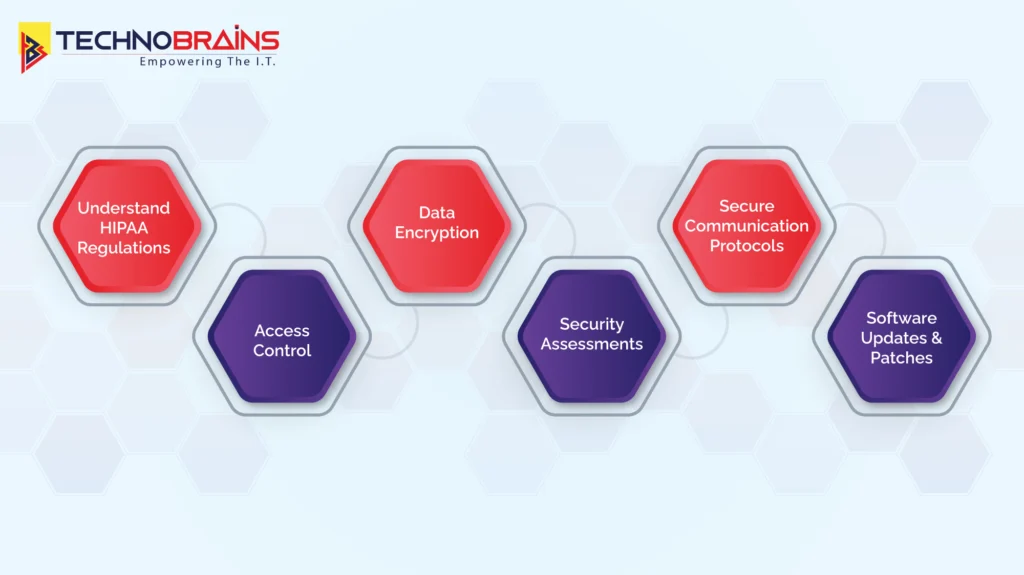
1. Understand HIPAA Regulations
Make sure each and every member of your development team is thoroughly knowledgeable of HIPAA rules, like the Security, Privacy, and Breach Notification Rules, before you commence your healthcare app development project. Pay particular attention to any changes or revisions made to existing rules and legislation. This ensures that everyone on your team understands the HIPAA rules thoroughly and can develop an app with patient privacy and security top of mind from the very beginning.
2. Implement Access Control
HIPAA compliance is all about preventing data misuse. The first step to doing so is to check who is permitted to access PHI. By implementing stringent access control mechanisms, you ensure that only authorized personnel are able to access confidential patient information based on their roles and level of access. Consider enforcing mechanisms like multi-factor authentication, strong password policies, and automatic logout for idle users. This way, you’ll significantly minimize the risks of potential data misuse, contributing to the dependability and credibility of your healthcare app.
3. Ensure End-to-End Data Encryption
Encryption is of vital importance in healthcare apps to keep patient data safe and make your mobile app HIPAA-compliant. Under the act, it is important to encrypt PHI while at rest and during transmission to bolster overall data security.
For this matter, you should employ strong encryption algorithms, such as OpenPGP, SSH, TLS/SSL, and AES-256. These algorithms can aid in turning all the information into an unreadable format that only people with the right decryption keys can read. This helps secure the data on servers and databases and during transmissions between the app and other systems, ensuring complete data security and communication.
4. Conduct Regular Security Assessments
Security in healthcare shouldn’t be an afterthought, but a clearly defined strategy. HIPAA envisions making this a fundamental component of every firm’s development process, whether the project entails building a chatbot, a telehealth app, or a prescription management application. That is why you should make it a point to regularly conduct security inspections to guarantee HIPAA adherence and address any security flaws in your application. This helps find potential threats and implement measures to mitigate them, while simultaneously making sure security best practices are fully adhered to at all times.
5. Incorporate Secure Communication Protocols
When transmitting PHI over various modes and networks, it is essential to make use of secure and well-tested communication protocols, such as HTTPS, PGP, SFTP, and FTPS. All these protocols offer the most reliable and safest methods of data transmission and ensure only the intended, authorized individuals can access the info. Moreover, you should secure all endpoints, APIs, and interfaces that interact with the application to prevent data interception and unauthorized access.
6. Release Regular Software Updates & Patches
In line with the growing risk that cyber threats pose, healthcare mobile apps should also be equipped with the safeguards necessary to ensure patient confidentiality and data protection. It is imperative that you roll out regular software updates, patches, and fixes to guarantee maximal security against potential threats and HIPAA compliance. This allows you to promptly resolve any security issues and implement necessary improvements to protect patient information, strengthening adherence to HIPAA laws further.
Read Also, Healthcare Apps Innovations: Transforming Healthcare Industry
Conclusion
Navigating the tricky terrain of HIPAA compliance is difficult, yet essential to successfully delivering a mobile app that emphasizes patient health information security. Developing HIPAA-compliant apps can help healthcare organizations build trust and credibility with users and stakeholders. Following these best practices, you can construct healthcare apps that meet legal requirements, protect data integrity, and achieve profound success.
Being a well-known software development company, TechnoBrains is acquainted with all HIPAA standards. So when it comes to that context, we can aid you in building mobile applications and solutions that adhere to all HIPAA prerequisites, making certain that your app complies with all applicable laws and renders an enjoyable experience for users.
With incredible domain experience, TechnoBrains is prepared to assist you in formulating HIPAA-compliant healthcare software that positions your organization for success in the competitive landscape of today. Choose TechnoBrains for your next healthcare software development project, and connect with us now!
